Course Information

RESOURCES
> WHAT TO EXPECT (Food, Solo, Crew, Instructors)
> DIVERSITY & NON-DISCRIMINATION STATEMENT
> ELIGIBILITY CRITERIA FOR WILDERNESS-BASED COURSES
CONTACT US
If you have questions about the application process, submitting forms, or anything else, your contacts are:
Matthew Rosky - 23V Recon Program Manager
828-778-5445 or [email protected]
Whitney Setser - Associate Director of Student Services, North Carolina Outward Bound School
828-239-2175 or [email protected]
WELCOME TO YOUR JOURNEY

23 Veteran RECON Backpacking and Rock Climbing Expedition
Dates: September 20-25, 2025
We are pleased you have begun the process that will lead you Outward Bound. We promise you an extraordinary outdoor adventure and bonding opportunity.
Veterans programs are designed to be fun, fast and challenging. We make the most of the organizational and teamwork skills you learned in the military to get you straight into the wilderness. Your leadership skills will be tested as you and your crew-mates take on the responsibility of route planning, navigation, camp site selection and meal preparation all the while helping one and other overcome the physical obstacles of being in the wilderness and the emotional challenges of transitioning back to life at home.
At Outward Bound you will have the opportunity to discuss your service experience in a supportive, non-confrontational setting surrounded by fellow veterans while experiencing the beauty of the country you have served.
The wilderness is our classroom. We operate in all kinds of weather and travel a variety of terrain. There will be times when you can expect to be hot or cold, wet, tired and sore. You will push your limits both physically and mentally on Outward Bound. Our staff, sometimes veterans themselves, have extensive wilderness experience working with groups. You can rely on their ability to manage risk on your program. However, personal health, safety and well-being in the wilderness is the responsibility of each and every member of your crew.
Outward Bound is not a vacation or retreat. An Outward Bound course is a back country wilderness expedition. You will be carrying a heavy backpack over broken terrain, camping outside under tarps or in tents in a different location every evening and and will not have access to showers or bathrooms. As explained above we operate in all types of weather conditions and your course could involve cold days with rain or snow.
This course web page contains all the information needed to prepare for your wilderness adventure. Please bookmark for future reference. It is your “go to” location for all forms, gear lists and information specific to YOUR course. Take the time to read the information.
To complete an Outward Bound course is an achievement. People of all ages remember their Outward Bound experiences for a lifetime and frequently report, "Outward Bound was the best thing I ever did." On behalf of Outward Bound, we thank you for your service to our nation and look forward to seeing you in the wilderness.
23V RECON Program Backpacking and Rock Climbing Expedition
Dates: September 20 - 25, 2025
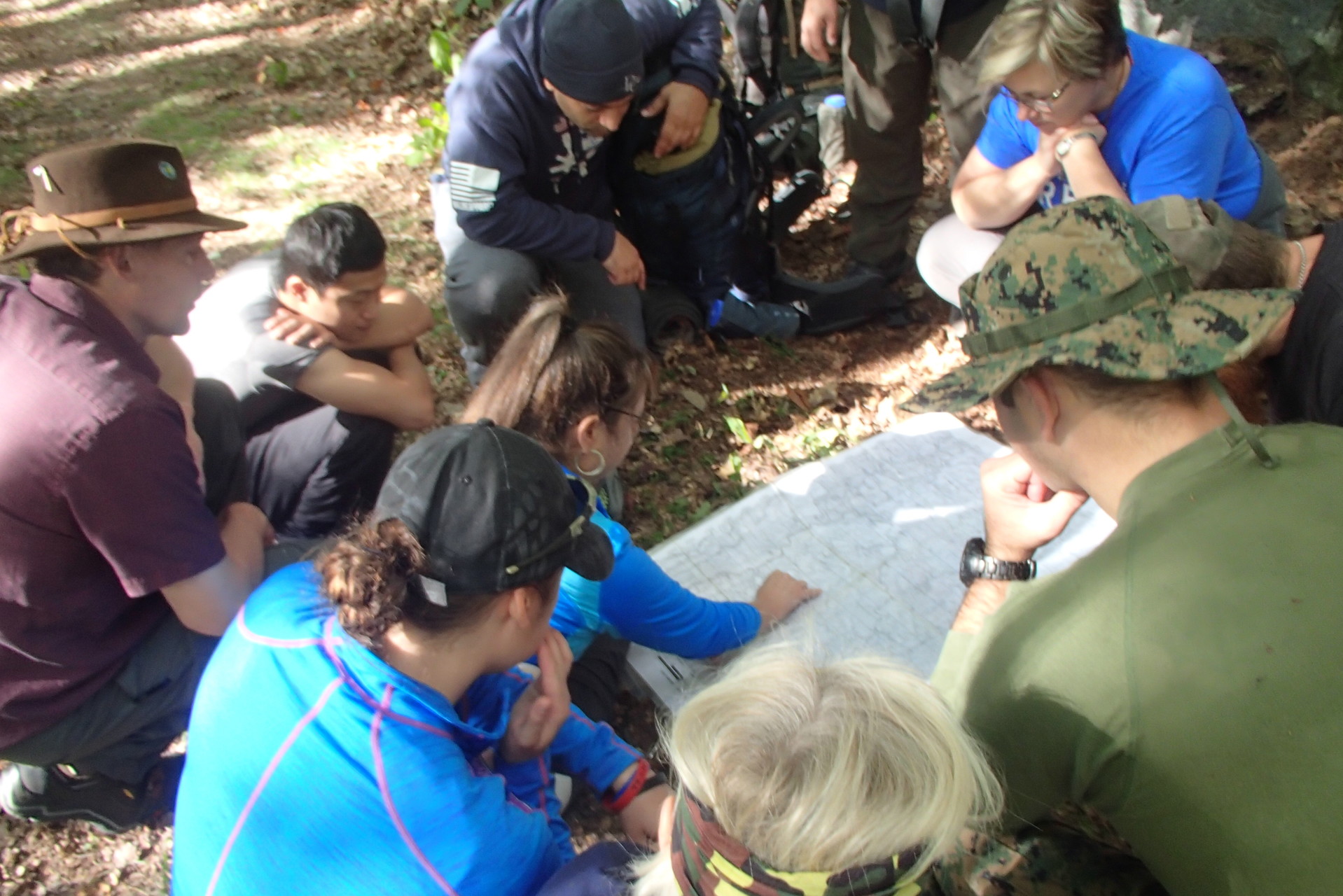
For over 30 years, Outward Bound has run wilderness expeditions specially designed for war veterans and service members. Outward Bound draws on the healing benefits of teamwork, challenge, friendship and the natural world. These courses provide a unique opportunity for self-discovery that can help veterans with their transitions back into civilian life.
BACKPACKING
Specifics: During your course, you will be backpacking up to three days.
During your course, you will be spending the majority of your time backpacking. During this component, you learn safety precautions for backcountry foot travel, how to find campsites, how to navigate terrain as well as how to use a map and compass. Equally important will be time spent learning conflict resolution, communication styles, leadership and team building. After practicing these skills, your instructors will step back and let you and your crew work together to collectively navigate through the wilderness.
Since your crew’s navigation depends on individual and group decision making, your crew could make some navigational errors along the way. You will be carrying a backpack that may weigh 50+ pounds. The weight is manageable, as the packs (when fitted correctly) will rest on your hips not on your back or shoulders. You may end up hiking long hours to reach your destination. You may expedition three miles uphill one day and eight miles over varied terrain the next day. Therefore, we want to remind you that physical preparation is very important!
ROCK CLIMBING
Specifics: Weather permitting, and due to the course length, you may spend a day either rock climbing, rappelling or on our high ropes course.
With a focus on the practice of safety, your lessons will start with the basics, such as working with ropes and learning to tie knots used for climbing and rappelling.
- Top-Rope climbing or “top-roping”: A style of rock climbing in which a rope runs from a belayer at the foot of a route through one or more carabineers connected to an anchor system at the top of the route and back down to the climber. The rope is attached to the climber by means of a harness.
- Rappelling: A means of controlled descent to lower yourself down a cliff, rock face or some other high location.
SOLO - SELF REFLECTION
Solo typically occurs more than halfway through your course and may last up to 24 hours. Your instructors will assign each participant an individual campsite within a designated area. Your instructors will teach you procedures to follow during solo and monitor you during this experience. You will know the location of your instructors’ campsite should you need to contact them; otherwise it is essential that you remain in your designated area. If your course has an overnight solo you will have your clothing, food and water. In addition, you will have Outward Bound issued gear: including rain gear, shelter, sleeping bag, compass and whistle. You will not be physically active during solo, as solo is a time for rest, recharge and reflection. Solo is also a good time to write in the journals we provide. If you have questions or concerns, please discuss with your Student Services Representative or your instructors.
FINAL CHALLENGE EVENT
At the end of your course, you will participate in a personal challenge event. This is a great time to see how much your physical fitness and endurance have improved since you began your course. This event will be a running activity. It is not a race. Your instructors set a certain route for your crew and you complete the route at a level that will challenge you the most.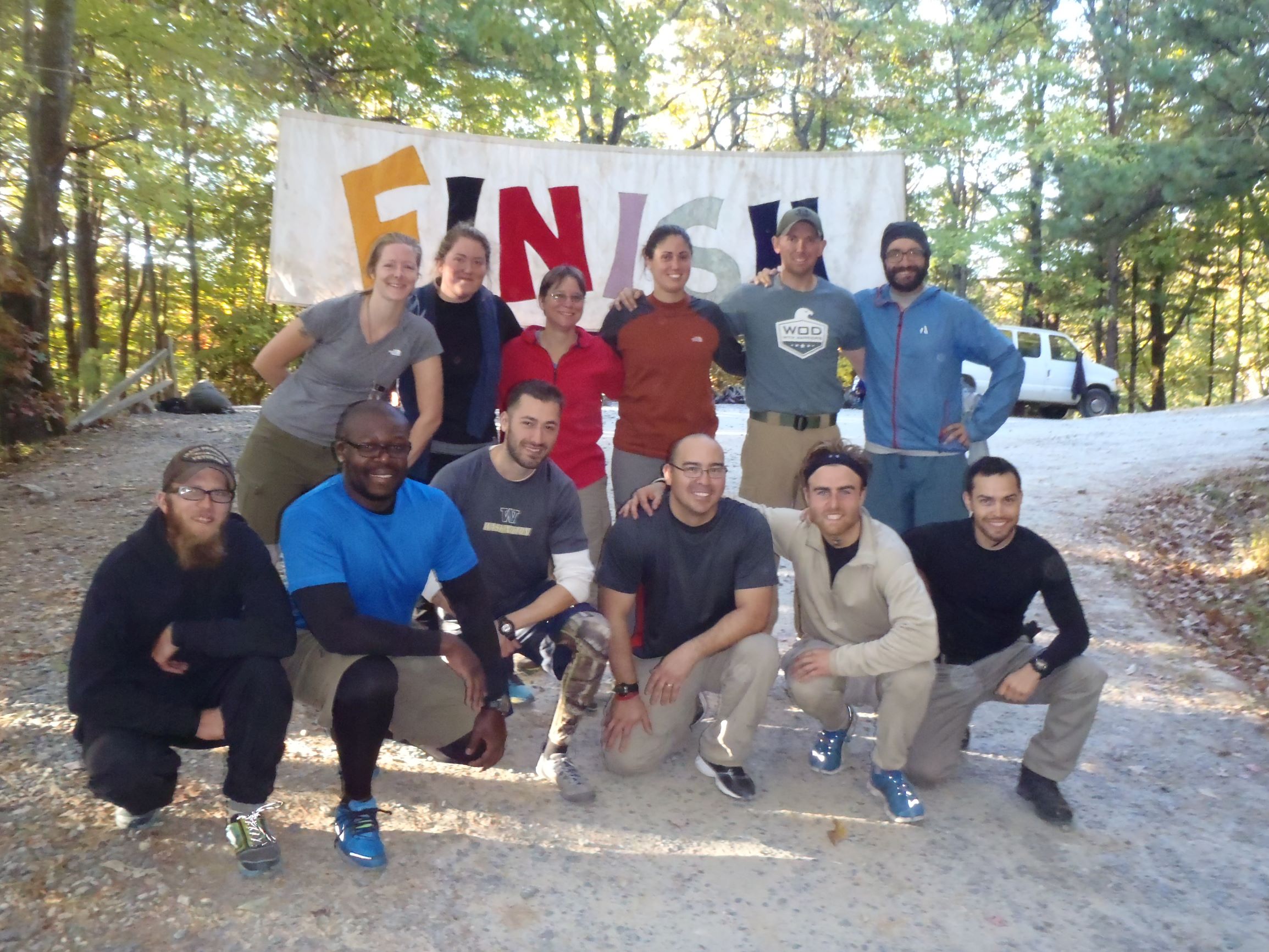
This is only a SAMPLE itinerary only. Adjustments will be made due to weather, programming area availability and group dynamics.
DAY 1: Course start, duffle shuffle, camp craft, backpacking expedition
DAY 2-3: Backpacking expedition, navigation and risk management skills
DAY 4: Rock climbing and or ropes course, belaying and rappelling; Solo
DAY 5: Backpacking expedition
DAY 6: Personal challenge event, clean and de-issue gear, Breakfast Banquet, graduation ceremony. Course end.
BLUE RIDGE MOUNTAINS, NC
Because the Appalachians were once one of the largest mountain ranges in the world they have many different geologic landforms, climates and soils. This long evolutionary history and temperate climate create an area which is teeming with life. Participants can expect to share the wilderness with over 700 different kinds of trees, more than 50 types of mammals, 150 different types of birds and about 40 species of amphibians.
This course area is situated within a million acres of national forests, federally-protected wilderness areas, and other public lands. Its diverse landscapes have been featured in many motion pictures, including The Hunger Games and The Last of the Mohicans. <Click to learn more about this course area.>
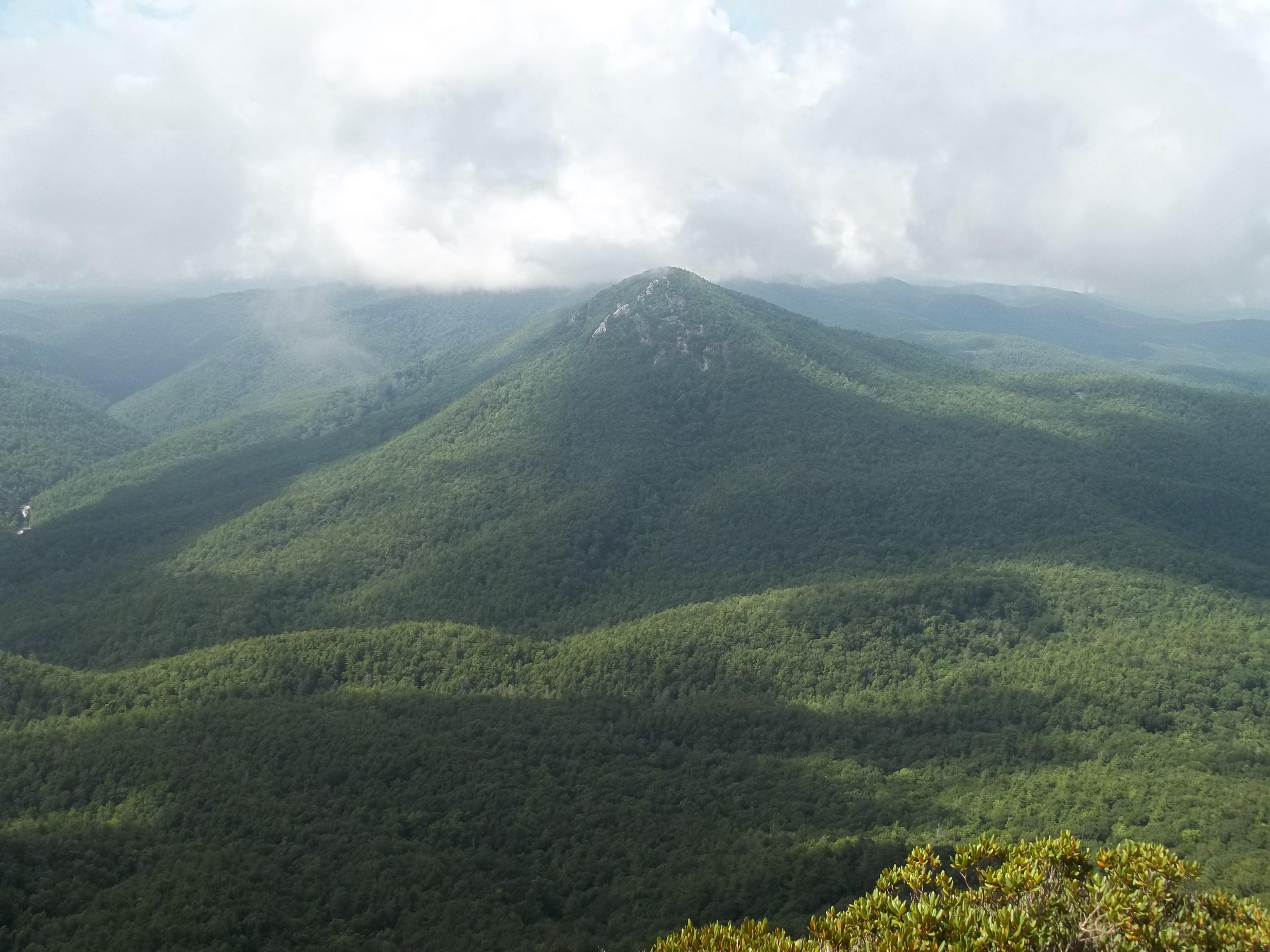
While in the mountains, each crew will be given large tarps to set up as shelters. You will also be given a ground sheet and a foam sleeping pad to place under your sleeping bag.

Here are some books that we encourage you to read as you plan for your course:
- The Outward Bound Wilderness First-Aid Handbook by Jeff Isaac
- Leave No Trace: A Practical Guide to the New Wilderness Ethic by Annette McGivney
- Knots & Ropes for Climbers by Duane Raleigh and Mike Clelland
- The Outward Bound Backpacker's Handbook by Glenn Randall
- The Outward Bound Map & Compass Handbook by Glenn Randall
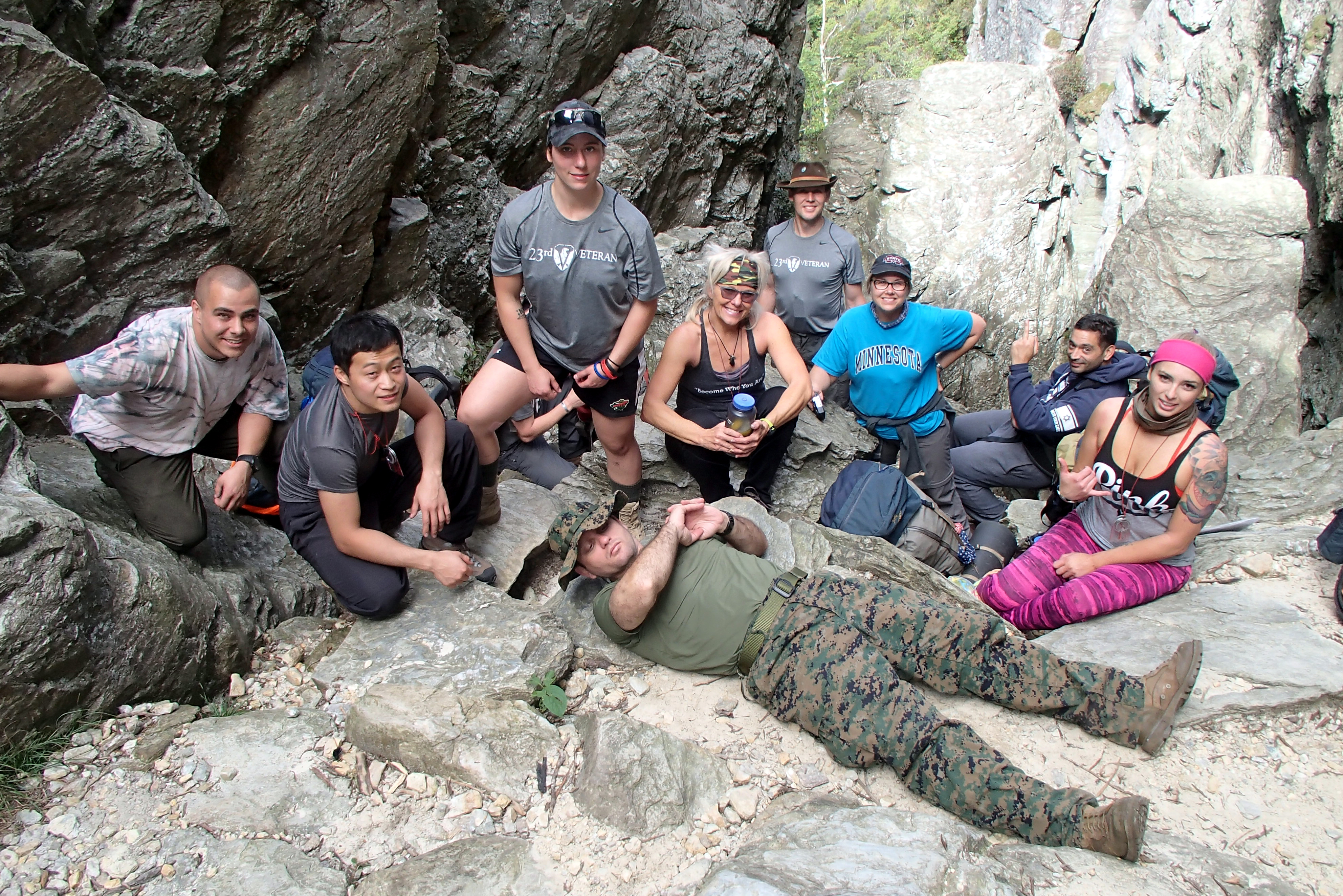
SHOW UP
Do not take attendance lightly. We will not skip 23V Recon for work, family time, sports, or vacations. We are required to be here for every session for the next 3 months. By putting this program first, family life, school life, and work life will benefit for the rest of your life.
NO COMPLAINING
Instead, bring an attitude of ‘Unconditional Positivity.’
We do not judge each other. We do not make negative comments about anything or anyone. If we hear a participate complaining, we politely ask them to bring it up to the staff or a trusted member in a private setting.
NO WAR STORIES
Re-telling a traumatic event can be damaging to the brain. This should only be done in controlled situations with qualified personnel. We do not want other members recalling negative experiences during their time at 23V Recon.
NO SELF-MEDICATION
This includes alcohol, marijuana, and abuse of medications.
DON’T WATCH THE NEWS
People who watch 3 minutes of negative news in the morning, 8 hours later report having a worse day than people who didn’t watch the news or watched positive news. If you need to know about a current event, someone is going to tell you. A great resource for positive news is GoodNewsNetwork, available online and smartphone apps.
While you do not have to be a gifted athlete or in peak physical condition to attend an Outward Bound course, you do have to prepare for the challenges of Outward Bound.
There are two kinds of strength necessary to complete your course; physical and mental. Your body needs to be strong, but you must also come with an open mind, willing spirit and a cooperative attitude. Whether you paddle a canoe or kayak for six or eight hours, expedition with a 50+ pound pack through a steep mountain range or scale a rock wall, you will be pushed and rewarded on many levels.
Note to caffeine drinkers: If you drink coffee or caffeinated teas you will have access to these items on course. However, they will not be available in the amounts that you may be used to. You may want to cut back a bit before course because you will not be able drink these beverages on your regular schedule.
Note to tobacco/nicotine users: Please review the information in the Nicotine & Tobacco Policy tab below.
Preparing and eating tasty meals in the backcountry is part of the Outward Bound experience.
Under your instructors' supervision, you and your crew will prepare group meals in a camp setting using gas camp stoves. Meals are eaten as a group and may start off with group announcements, appreciations, or an inspirational quote. We use this time together to reflect on the successes and challenges of the day and to plan what is to come for the following day.
Your group will travel with approximately a week’s worth of food at a time. For courses 14-days and longer, our support staff meet up with your group in the wilderness periodically to restock your food. This meet up is called a “re-supply.”
Our courses are physically rigorous, and our meals emphasize protein and carbohydrates to re-fuel your body. All course food is packable and non-perishable. We use a mix of dehydrated foods, fresh fruits, and vegetables. Our goal is to provide meals that are familiar. However, we ask that you be open to trying foods that may be new to you.
Participants should not bring their own food or snacks unless authorized to do so by NCOBS.
Our Food Pack Out Process
All meals at Outward Bound are cooked outdoors in remote camp settings. We work diligently to provide familiar and tasty foods, and we acknowledge that our food options are limited while we are on expedition, away from our supply facilities.
We depend on clear and accurate food allergy and dietary restrictions disclosed during the admission process to adequately plan and pack your group’s meals and snacks prior to course start. Our processes are not designed to accommodate last minute dietary requests or to loosen dietary restrictions originally disclosed.
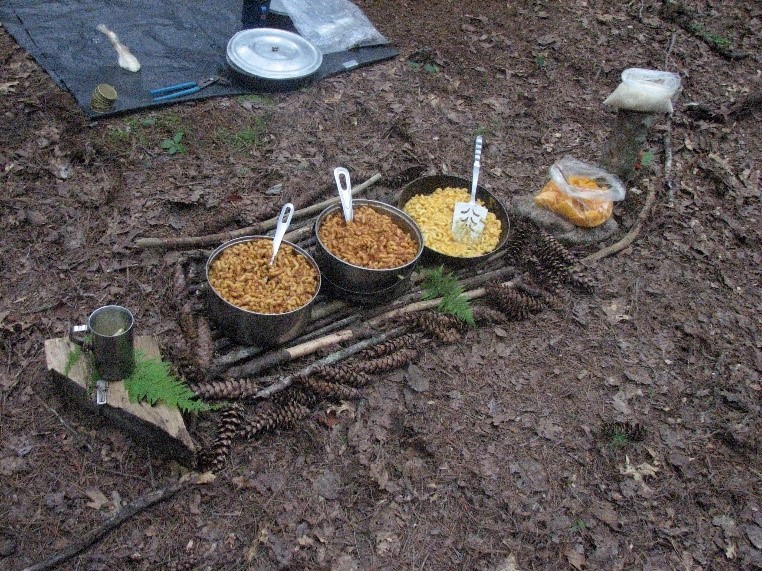
MEALS AT OUTWARD BOUND
The following list represents common meals at Outward Bound (this is not a menu)
Breakfast
- Bagels and cream cheese
- Pancakes with butter and syrup
- Cream of wheat
- Grits with cheese and dried fruit
- Grapenuts or Granola and soy milk or cow’s milk
- Oatmeal with raisins and brown sugar
- Huevos Rancheros: eggs, salsa, cheese and black beans on tortillas
Lunch
- Peanut butter and Jelly on tortillas
- Pizza: pepperoni, mozzarella, tomato paste, pita bread
- Hummus with carrots, cheese and crackers
- Salami with cheese and crackers
- Beans Galore: black beans, red beans, white beans, corn, onion, Italian dressing on tortillas
- Tuna and cheese on pita bread
Dinner
- Pasta Alfredo: Rotini with alfredo sauce and mushrooms
- Burritos: refried beans and rice with salsa and cheese
- Tuna Mac: Macaroni with cheese, parmesan cheese, tuna and milk
- Stir Fry: Rice and chicken with vegetables, coconut milk and curry powder
- Veggie Chili with rice, cheese, onion and cornbread
- Tacos: Natures Burger with tomato paste, cheese, onion and Tortilla
Drinks (other than water)
- Cocoa
- Tea/Coffee (in moderation)
- Drink mix
Snacks
- Fruit (oranges, apples)
- Trail mixes (many varieties)
- Goldfish crackers
- Pretzels
North Carolina Outward Bound strives to accommodate many dietary restrictions.
We encourage applicants to share with us their dietary needs during the admissions process. We regularly accommodate vegetarian, pescatarian, dairy free, gluten free and more. We dedicate considerable resources to meeting dietary needs by substituting or omitting food items for an individual or for the whole group.
If you disclose a dietary restriction like lactose free, dairy free, gluten free, etc., we will plan for you to maintain that diet restriction during course unless you specify otherwise. Therefore, please only include dietary restrictions you are committed to maintaining during course to minimize potential food waste.
We urge caregivers of youth applicants to discuss dietary restrictions prior to completing the application materials, to confirm alignment on the information provided to us.
Preferences
Our primary goal is to meet students’ dietary allergies or intolerance/ sensitivities. The addition of food preferences could further influence the menu items we can provide.
Our staff members, who have had years of experience in the field, find that once students with food preferences engage in our rigorous backcountry, wilderness-based activities, those same students tend to (at least temporarily) broaden their food choices. We believe students may find these foods surprisingly appealing during their course due to their bodies’ increased need for calories.
Dietary Allergies, Intolerances and Sensitivities
NCOBS cannot guarantee there will be no exposure to known allergens. If the applicant has had an anaphylactic response related to a dietary allergen, we must consider our remote wilderness area as we determine the appropriateness of our programs for the applicant.
Depending on the severity of the allergy, NCOBS can accommodate by:
- Purchasing foods labeled as being free of the known allergen
- Packing out allergen free foods separately to reduce the potential for cross contamination
A dietary intolerance or sensitivity can also typically be accommodated on course. If you can tolerate the food item in limited amounts, please disclose these details in your application materials so that we may strive to broaden the range of foods we provide.
Religious Requirements
North Carolina Outward Bound strives to accommodate religious dietary requirements. Please disclose your requirements in your application materials and call your Student Services Representative if you have questions.
We urge caregivers of youth applicants to discuss dietary restrictions prior to completing the application materials, to confirm alignment on the information provided to us.
Food Aversions
Depending on the food aversions, NCOBS can accommodate by:
- Allowing applicants the choice not to eat certain foods/ingredients we provide.
- Allowing applicants the choice to bring alternative foods to what we provide.
We encourage applicants who indicate highly restricted diets to review our Essential Eligibility Criteria and note this requirement specific to nutrition and hydration:
Learn and perform essential self-care....maintaining adequate hydration, nutrition... and managing any known medical conditions for the duration of course, often more than a day from advanced medical care.
Please call your Student Services Representative if you have concerns about the applicant’s ability to meet our Essential Eligibility Criteria.
Picky Eaters
Outward Bound requires daily physical activity that often exceeds an applicant’s level of physical activity in everyday life.
We urge caregivers of youth applicants to discuss eating habits prior to completing the application materials, to confirm alignment on the information provided to us.
Over the years, we have observed students with picky eating habits are most successful on course when they are willing and able to broaden (at least temporarily) their food choices due to their bodies’ increased need for calories. Please review our Essential Eligibility Criteria and note this requirement specific to nutrition and hydration:
Learn and perform essential self-care, including dressing appropriately for protection from environmental conditions (such as sun, rain, cold, etc.), maintaining adequate hydration, nutrition, and personal hygiene, and managing any known medical conditions for the duration of course, often more than a day from advanced medical care.
Please call your Student Services Representative if you have concerns about the applicant’s ability to meet our Essential Eligibility Criteria.
Our wilderness courses are physically rigorous, and we recommend you prepare by increasing your cardiovascular fitness and quitting nicotine and tobacco products well before course start. We maintain a Zero-Tolerance Nicotine and Tobacco Policy on most courses.
However, to increase the accessibility of our Veteran, Educator and Professional programs, we follow an amended Nicotine and Tobacco Policy:
Use of tobacco (cigarettes/dip) or nicotine (gum, pouches, vape pens) is permitted in the following circumstances:
- The group has completed travel for the day.
- No group activities are occurring.
- Use occurs away from the campsite.
- Use occurs individually (e.g., no smoke circles).
Participants must get permission for use from their Instructors before each instance (to confirm it is an appropriate time and place) and Instructors will set a time limit to complete use and return to the group.
For nicotine vape pens – cartridges must be unopened, in original packaging and have approval from Instructors to be brought on course.
Nicotine patches are permitted on course for those who are already using patches as part of their tobacco cessation treatment.
Maintaining personal hygiene in the wilderness is important and is taught on every course. You will be outside while on course and won't have access to a shower or bath. You will be able to do basic cleanup every day: brush your teeth, wash your face and comb your hair. At the end of your course, you will be able to do a more thorough cleanup.
Since North Carolina Outward Bound is an outdoor program, you can expect to learn and use Leave No Trace camping techniques. Know that it is natural to have questions regarding sanitation in an outdoor setting. Your instructors will answer your questions and will teach you the hygienic and environmentally safe way to dispose of waste as well as techniques for basic cleanliness - don't hesitate to approach them with any questions or concerns
In our everyday lives, technology is always at our fingertips. By contrast, in the life of an Outward Bound participant, you have the unique opportunity to unplug and fully immerse yourself in the wilderness to connect with your crewmates and instructors.
Guidelines
NO:
- Electronic devices such as cell phones, GPS devices, asset tracking devices (such as Airtags), and/or any other wi-fi enabled electronic devices are not permitted while on course.
- No cell phone cameras allowed.
YES:
- Carry your cell phone with you to course start. Your cell will be locked in a group storage bin with your luggage at our facility while you are on course. You’ll be reunited with your cell phone at course end.
- Bring a camera to record the events of course – either a waterproof disposable camera or a digital camera with a small “dry bag” or Ziplock bag for storage. Our courses are rigorous and there is a risk of losing or damaging your camera.
Safety and Risk Management
Please review our Safety and Risk Management page.
At all levels of our school, we demonstrate our dedication to participant safety by our words, actions and values. Outward Bound has been a national leader in wilderness safety for over 50 years and frequently advises and assists other organizations in outdoor adventure risk management. Living and traveling in a remote wilderness setting exposes you to risks different than those you may encounter in your daily life. We believe that accepting appropriate risks and training and preparing participants to manage those risks, provides invaluable life experience. Regardless of precautionary measures, risk and uncertainty are central to the concept of challenge and adventure. The intent is not to avoid activities involving risk but to recognize, prepare for and successfully manage risk. In order to identify any potential hazards and update best practices, our programs are regularly reviewed by outdoor professionals from inside and outside the Outward Bound system.
Outward Bound instructors receive regular training in the activities and environments in which we deliver our courses. They are trained to anticipate and manage risks inherent in remote areas. They are also trained in first aid, search and rescue and emergency management. Our instructors are certified Wilderness First Responders; some are Wilderness Emergency Medical Technicians or equivalent. Outward Bound maintains a minimum staff-to-student ratio of approximately 1:6. Instructors work in teams of two or three with six to 12 students. Instructor teams are usually co-ed but balancing skills and teaching styles is our primary staffing focus. One instructor in every team is a lead instructor with multiple seasons of training and experience. The lead instructor has single point accountability for the safety and effectiveness of the course in the field as well as mentoring their staffing team. For more information on our instructors, please check out our staff profiles page or our careers page for instructor requirements.
As a participant, you must take responsibility for yourself by following instructions and practicing the skills taught by your instructors.
Please also review our Safety and Risk Management page.
If a family emergency occurs while the course is in progress, emergency messages can be relayed by calling our toll-free number (800-878-5258) on weekdays 8:30 AM – 5:00 PM eastern time. Prior to course start, you will receive an email that provides an after-hours and weekend emergency phone number.
The history of Outward Bound serving veterans dates to 1971 and the “Spartan Pathfinder” program run by the John F. Kennedy Center for Military Assistance. The purpose of the program was to use Outward Bound techniques to reorient soldiers with drug and disciplinary problems and “promote self-confidence and self-awareness through controlled stress in a wilderness environment.” From 1975 - 1981, the Dart-mouth Outward Bound Center and the Department of Psychiatry at Dartmouth Medical School began serving veterans working through Post Traumatic Stress and other mental health diagnoses.
In 1981 Dartmouth Outward Bound Center merged with Hurricane Island Outward Bound School and by 1983 Outward Bound for Veterans was born.
Since 2006 Outward Bound has served close to 10,000 Veterans and Active Duty service members. While the majority of the participants are veterans of Afghanistan and Iraq, we welcome veterans from any era to attend one of our courses.
The founder of the Vietnam veterans program and a guiding hand through many iterations of Outward Bound for Veterans was Army Colonel Bob Rheault. Colonel Rheault commanded both the 1st and 5th Special Forces Groups. He became an Outward Bound instructor after he left the Army, “because it was the closest thing to Special Forces that he could find.” For 32 years Colonel Rheault served as an Instructor, Program Director and President of the Hurricane Island Outward Bound School, retiring in 2001. Colonel Rheault passed away in 2013.

The Student Services Department of the North Carolina Outward Bound School is committed to supporting you through the enrollment process. If you have comments or feedback to share regarding your experience with us, please contact our Director of Student Services Erin Broome, [email protected].
The Clothing and Gear list is the result of many years of staff and participant feedback. Please read and follow these suggestions and the check list closely.
WHAT WE SUPPLY
North Carolina Outward Bound School provides:
- sleeping bags
- sleeping pads
- shelter
- compass
- food
- water bottles
- cooking equipment
- eating utensils
- rain gear - unless otherwise notes on your packing list
We also provide activity-specific items based on your course type:
- backpacks
- rock climbing gear
- canoes, and/or
- sea kayaks
Please refer to the Packing List below for the items to bring to course.
WHERE TO SHOP
First, shop your closet or those of your family or friends - you might have many of these items already. Then start planning what you may need to buy, leaving yourself time to find sales or free shipping.
Many students shop for clothing and gear from the following retailers:
- Goodwill, other thrift stores, consignment stores
- Walmart, Target, Amazon, Old Navy, other large chain stores
- REI Co-Op
- Eastern Mountain Sports
- Sierra Trading Post
Plan ahead! When you arrive for course start, you will not have an opportunity to purchase forgotten items!
Please review the video How to Pack for Course Without Breaking the Bank below.
PACKING AND STORAGE
When packing, use a duffel bag or soft-sided luggage (if available) due to limited storage space at our facility.
When you arrive, your instructors will facilitate a process we call “duffel shuffle” that includes:
- Assessment of your clothing and gear with the route and the anticipated weather in mind. (Tip: save the tags from new purchases so you can return any unused items after course end.)
- Issue Outward Bound items you will use during course
- Stowing personal items not needed while on expedition such as travel clothes, cell phones, electronic devices, and wallets back into your travel luggage.
- Luggage will be transported to our facility and placed in locked storage until course end. Please leave any expensive or valuable items at home.
All items should be synthetic or wool (NOT cotton or denim) unless otherwise noted.
Fabric Types/Styles to Purchase: The Packing List reflects the layering principle. It is vital that all your clothing be comfortable, quick-drying, and warm. Review our Fabrics and Layering for the Wilderness blog on the importance of fabrics.
Quantity Ranges: You will have limited space for storing the clothing you bring to course. You will be wearing your clothes multiple times as needed based on the weather and activities. To avoid being requested to leave clothes behind in your luggage, do not plan for 1 separate outfit per day.
If you have questions, please contact your Student Services Representative.
Upper Body
|
Quantity |
Item |
Description/Purpose |
|
1 |
Fleece jacket or pullover, medium weight |
To keep you warm when not active in camp, should be warm enough to be worn alone but thin enough to fit under an outer layer like a rain jacket |
|
1 |
Long sleeve shirt (base layer) |
Worn closest to skin, snug fitting, to provide warmth |
|
1-2 |
Long sleeve shirt, light weight |
Button up is preferred, worn over other clothing to protect from biting insects and sun |
|
2-4 |
T-shirts (synthetic) |
Not cotton, athletic shirts appropriate |
|
2-3 |
Sports bra |
If applicable |
Head and Face
|
Quantity |
Item |
Description/Purpose |
|
1 |
Beanie |
|
|
1 |
Wide-brimmed hat or baseball cap |
|
|
1 |
Bug head net |
Mesh material that is worn over your hat, protects your face and neck from insects |
|
1 pair |
Sunglasses with case and retainer strap |
|
|
1 pair |
Prescription eyewear with case and retainer strap |
If applicable |
Lower Body
|
Quantity |
Item |
Description/Purpose |
|
1 |
Long pants (base layer) |
Worn closest to skin, snug fitting, to provide warmth. Athletic leggings and long underwear acceptable |
|
1-2 |
Pants, light weight, quick-drying |
Loose fitting preferred. Will be used for hiking |
|
1 |
Shorts, light weight, quick-drying |
5" minimum inseam |
|
3-6 |
Underwear |
|
Hands and Feet
|
Quantity |
Item |
Description/Purpose |
|
1 |
Gloves, light weight |
For warmth and/or sun and insect protection. Water resistant preferred. |
|
2-5 pairs |
Socks, medium weight |
Not cotton |
|
1 pair |
Hiking boots |
Must be waterproof, have a good tread, a sturdy sole, and mid-ankle in height. Review our blog post on choosing boots. |
|
1 pair |
Sneakers or running shoes, old or used are appropriate |
Used for times when you don't need hiking boots but do need a sturdy, closed toe hiking shoe. EX: running, group problem solving activities, or camp chores |
|
1 pair |
Camp/River crossing shoes |
Should be quick drying, fit securely, have a heel strap, be closed-toed, and protect most of the foot. EX: Croc-style or Keen sandals. *Flip flops, slides, aqua socks, diving booties, and other soft/neoprene-type foot wear are NOT appropriate. |
Personal Items and Toiletries
|
Quantity |
Item |
Description/Purpose |
|
1 |
Prescription medication |
If applicable |
|
1 |
LED headlamp with spare set of batteries |
Avoid USB/rechargeable headlamps |
|
1 |
Insect repellent |
Max 4oz bottle |
|
1 |
SPF 30+ sunscreen |
Max 4oz bottle |
|
1 |
Lip balm with SPF |
- |
|
1 |
Bandana |
Multi-use item |
|
2-3 |
Pens or pencils |
For writing on course (we provide a journal) |
|
2-5 |
Gallon-sized zip lock bag |
For keeping items dry |
|
1 |
Money – Approx $20 |
|
|
1 set |
Toiletries: toothbrush & toothpaste, haircare products (see Eye, Skin, and Hair Care section), Menstrual products (if applicable) |
To be used during course. Max 4oz each |
|
1 set |
Toiletries: shampoo & conditioner, soap |
For shower at course end. Max 4oz each |
|
1 |
Bath towel |
For shower at course end |
|
1 set |
Extra set of clothes for travel days |
- |
Optional Items
|
Quantity |
Item |
Description/Purpose |
|
1 |
Trekking poles |
Helps distribute weight while hiking with heavy packs |
|
1 |
Watch with alarm |
Waterproof or water resistant (no smart watches) |
|
1 |
Packable camp chair |
Lightweight, foldable, like a "Crazy Creek" chair |
|
1 |
Camera; can be digital or disposable |
Bring extra batteries, memory card, extra film, etc. as needed |
|
1 |
A “cover up” – lightweight fabric item (i.e. a twin sheet, a sarong, or other packable fabric). Can be cotton and a repurposed item. |
For discreet clothing changes and/or covering up from biting insects at night while sleeping |
|
1 |
Rain Gear (jacket and pants) |
For Adults on 18+ courses. Loose fitting; 100% waterproof, not water resistant. Must be two or three-layer Gore-Tex or similar high quality. Rain jacket preferred to have reinforced shoulders. Rain pants should have ¼ leg zipper at minimum. |
Maintaining personal hygiene in the wilderness is important and is taught on every course. You will be outside while on course and won't have access to a shower or bath. You will be able to do basic cleanup every day: brush your teeth, wash your face, and comb your hair. At the end of your course, you will be able to do a more thorough cleanup.
PRESCRIPTION EYEWEAR: GLASSES & CONTACTS
Please bring your prescription eyewear to course and any applicable backup options. For glasses a retaining band is necessary to prevent loss during an activity.
For participants who wear contact lenses, you must bring your prescription glasses as back up. Be sure to bring enough contact lens solution so you can be diligent in your contact lens routine while out on course.
Please be aware that the use of contact lenses in the backcountry does carry more risk than when at home. A great level of diligence and hygiene is required in ensuring you do not damage your eyes.
SKIN CARE
You will be outside during your course. To maintain your health and comfort, the best protection from biting insects, skin irritation and sunburn is a physical barrier of clothing. Bring the required clothing and gear listed – it's essential to your comfort and safety.
It is your responsibility to follow your instructor’s directions and monitor how your skin reacts to the changing environment. Let them know if you encounter skin concerns before they present a barrier to your participation.
If you are traveling by air to your course, please review the TSA Carry-on Requirements for liquids.
HAIR CARE
Here are a few tips caring for long, kinky, or curly hair while on course:
- Bring a comb, brush, or pick
- Protect your hair by covering it with a hair bonnet, silk scarf, headwrap, durag, loc tube, bandana, etc.
- Use a bandana, head wrap, hair scrunchies, etc., to keep hair out of your face
- Bring 3oz hair oil
Before course, consider putting your hair in a protective style, allowing enough time for your head to adjust prior to the start of your Outward Bound course. Be sure that your protective style will fit underneath a helmet. Suggested protective styles include:
- Box Braids
- French Braids
- Feed-in Braids
- Cornrows
- Faux Locs
- Two Strand Twists
- Plaits
- Flat Twists
Increased physical activity during Outward Bound may cause a change in your menstrual cycle. Prepare your menstruation kit using a zip lock bag even if you don’t expect your cycle during course.
Items to include:
- Menstruation products such as tampons, pads, panty liners, and menstrual cups. Bring more than you would typically use. Absorption underwear is not recommended.
- 1 small travel pack of disposable wipes or bandana. Our instructors will teach appropriate backcountry techniques for basic cleanliness.
- 1 small travel-size bottle of hand sanitizer
- 1 to 2 extra pairs of underwear
We practice Leave No Trace camping techniques. Therefore, we pack out what we pack in. Instructors will distribute small opaque zip lock bags and small stuff sack for your individual storage of used items.You will dispose of any used items either during re-supplies (approximately every three to seven days) or at course end.
Your instructors are experienced in addressing menstruation care questions or concerns while on course. Don’t hesitate to ask them questions.
Participants will not be permitted to begin their course without their required medications OR with new medications not approved by our Medical Screener.
All medications (prescription, non-prescription and over-the-counter) must:
- Be listed in the applicant’s medical information
- Be approved by our Medical Screener prior to course
- Accompany the participant on course
- Be in the original medication container with the prescription label intact
Your medication container should not include other medications, vitamins or supplements. If possible, bring a double supply.
Do not bring non-prescription medications such as aspirin, Advil, etc., unless they are listed in your medical information. We have a medical kit that contains these medications.
Medication updates that occur after applicants are cleared to participate could affect their status on course. Please update the Student Services Department with any medication changes such as:
- Starting a new medication
- Stopping an existing medication
- Dosage change of an existing medication
For participants on youth courses, our instructors carry all prescription medications, with the exception of birth control and emergency medications such as EpiPens or rescue asthma inhalers.
For participants on adult (age 18+) courses, we encourage participants to store their medication(s) container(s) in a zip-lock bag for protection. Pill sorters are not recommended.
You must notify Outward Bound should any medical, psychological, behavioral, or legal situations occur after the application and medical review process have been completed. Certain situations may affect the applicant’s course status.
Please review our comprehensive information onTick and Mosquito-Borne Disease Facts and Prevention.
In preparation for your upcoming course, we remind you to adhere to the clothing and gear list. We encourage parents/guardians of our youth participants to have a conversation regarding the importance of wearing long sleeves and long pants even when hot and humid to reduce the chances of bug bites, including mosquitoes and ticks. It is crucial that all students understand the need to follow the instructions of our staff in all regards, including expectations of self-care.
Each applicant has been sent a Welcome Email that contains an individual Applicant Portal link. Emails are sent from [email protected]. If you need this email re-sent, please email us at [email protected] with the subject line Resend Applicant Portal. Please also include in the body of your email your full name.
Once you have accessed your Applicant Portal, please review the Welcome Tab and then proceed to the Forms tab. All forms must be completed before your application will be reviewed. Your position may be released if required forms become past due.
TRAVEL DETAILS
All participants are required to follow our COVID-19 Program Protocols.
Travel to and from the course will be provided by 23rd Veteran.
ARRIVAL: September 20, 2025 at the Asheville Regional Airport (AVL).
Course start will be at 2 PM.
Information on where to meet our staff at the airport will be provided at a later date.
DEPARTURE: September 25, 2025 at the Asheville Regional Airport (AVL) - 11:45 AM
Departing flights will be between 2-6 PM
If you are traveling by air, be aware of TSA guidelines. To avoid TSA taking items out of your carry-on luggage (like insect repellent and sunscreen), pack these items in your checked luggage or do not exceed size specifications. For more information please visit the TSA website: Transportation Security Administration - Carry-ons
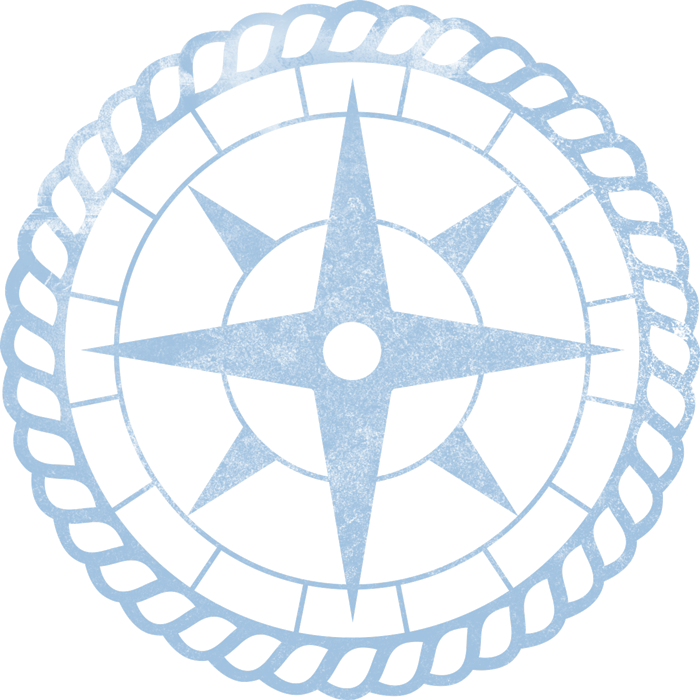
Sign Up for Updates
Stay informed on North Carolina news and updates! Please fill out the form below to begin receiving our email newsletter.

